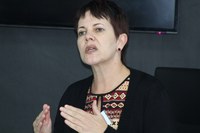Seminar interrogated SOE board appointments
This comes hot on the heels of the resignation of the SAA and Eskom CEO’s and shocking revelations about the level of maladministration and corruption unveiled by the Zondo Commission. The seminar discussed main areas of concern around government’s response to the challenges affecting SOEs and how a revised legislative and regulatory framework for board appointments may assist in addressing these challenges.
The seminar which was attended by the cso coalition of the Zondo Commission Working Group amongst others, provided an overview and opportunity for commentary on the second research report by Prof Wandrag, which interrogates the regulatory framework governing the appointments and dismissals of boards and executives at these SOEs. The paper recommends ways in which regulation could be streamlined to clarify the appointment and dismissal of board members and executives of national SOEs and thus strengthen the governance, operation and performance of these entities. Prof Wandrag noted that “One of the biggest stumbling blocks in the governance of state-owned entities (SOE) like PRASA, Eskom and the SABC is the lack of a clear, uniform legal framework that governs all of them’’.
Attendees of the seminar were of the view that there is a need for board competency assessments in future, rigorous appointment processes and greater public participation as provided for in section 59 of the Constitution. In addition, others were of the opinion that the Auditor-General of South Africa and CSO’s have a collaborative role to play in providing oversight. The challenges experienced in accessing MOIs and other SOE founding documents was also an area of concern raised by the panel and attendees. Members of the public noted that they are unable to hold the relevant stakeholders accountable due to a lack of transparency in these appointment processes and the unilateral role of the Ministers as majority shareholder, regulator and policy-maker.
These entities have featured prominently instead in reports and hearings on state capture, with rating agencies citing their financial instability as part of the reason for the repeated downgrades of South Africa’s credit rating. Much of the controversy relates to governance issues, particularly concerning the appointment and dismissal of board members and executives. It has become clear that many of the problems in this regard stem from the conflicting regulatory framework-such as the definition of ownership control and lack of appointment criteria for boards in the PFMA. A number of these conflicts have resulted in court cases, but the courts have not been uniform in their interpretation of overlapping or contradictory legislation.
Dr Tracy Ledger from Public Affairs Research Institute noted that SA genuinely need to incorporate the public interest in SOEs. She pointed out that, shareholder, regulator, board, management roles need to be separated. She also raised a number of questions like: What exactly are SOEs for? Who has insight into governance and oversight of SOEs? What is the performance management framework for SOEs? Is it effective?
Ms Sabeehah Motala from Corruption Watch, was of the view that there may be a possible link in the oversight failure by the legislature in both appointments at SOEs and Chapter Nine institutions and that it is essential that we interrogate these links.
Click here to find more information on our recent publications
https://dullahomarinstitute.org.za/news/new-research-to-help-fix-the-fail-in-soe-governance-laws

